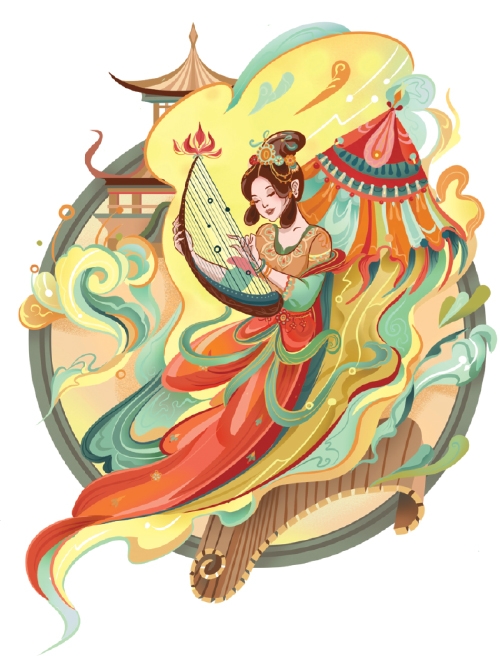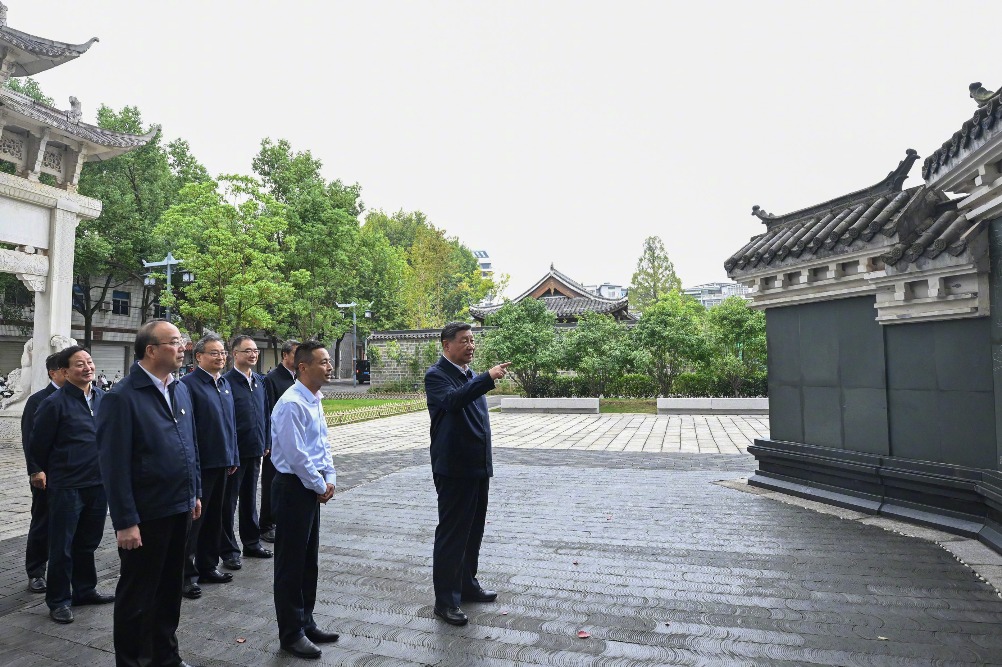China's worldview rooted in its ancient civilization


Chinese civilization, characterized by its vast scope and profound depth, stands as a treasure trove of inspiration for the contemporary Chinese worldview.
Stretching back over 5,000 years without interruption, the Chinese civilization boasts the prominent features of consistency, originality, uniformity, inclusivity and a peaceful nature.
The fact that Chinese civilization is highly consistent is the fundamental reason why the Chinese nation must follow its own path. Its originality explains why the Chinese nation upholds fine traditions but never blindly sticks to the old ways. It is also the reason why the Chinese nation is fearless in the face of new challenges and is always open to new things.
China is a multi-ethnic country whose 56 ethnic groups are united despite their diversity. The different ethnic groups work together for common development and prosperity. This strong uniformity determines that national unification always remains at the heart of China's core interests, with a strong and unified country being the foundation upon which the well-being of all Chinese people depends.
The inclusivity of the Chinese civilization is exemplified by the harmonious coexistence of diverse religious beliefs and the openness of Chinese culture to world civilizations. The China-proposed initiatives, such as the Global Development Initiative, the Global Security Initiative and the Global Civilization Initiative, call for shared prosperity and exchanges among cultures.
Chinese traditional philosophy contains abundant wisdom on foreign relations. The peaceful nature of Chinese civilization implies that China will continue to build world peace and contribute to global development. It determines that China upholds an independent foreign policy of peace and follows a path of peaceful development.
For thousands of years, the ancient Chinese saying "harmony is the most precious" has been embedded in the minds of Chinese people and has continued to have a profound influence on their attitude toward life. The phrase has evolved from an important moral concept of the Confucian school in managing interpersonal relations to a reference to harmonious and peaceful relationships among people, groups and states.
In an increasingly connected world fraught with grave challenges, the wisdom of harmony sheds light on how humanity can create a prosperous and peaceful future in a sustainable, environmentally friendly and cooperative way.
































